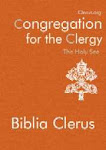On Friday, June 17th, 2011, the high school principal at Fair Haven Union High School in Vermont said “We are absolutely strong supporters of free speech” but prohibited a valedictorian from giving his talk about God at commencement. How little the principal understands First Amendment jurisprudence. Yet, his ignorance rules the students and their lives.
The relevant text of the First Amendment states:
"Congress shall make no law respecting an establishment of religion, or prohibiting the free exercise thereof; or abridging the freedom of speech, or the press . . . "
What is known as the “establishment clause;” it derives from the early colonial period when the many commonwealths established and supported (with taxpayers’ money) an official state church. After the United States was formed, the commonwealths eventually abandoned this practice, with Massachusetts being the last to do so in 1833.
The latter clause in the First Amendment prohibits any restriction on the “free exercise” of religion. After the 14th Amendment was passed, the First Amendment prohibition against the establishment of religion and free exercise was eventually enforced against each state as well as the federal government.
With this background, it is baffling to see a high school principal censor a valedictorian from giving his speech to his fellow students at his high school commencement, while on one hand roundly lauding free speech and on the other stating “federal law limits the kind of religious speech that’s permitted at a commencement at a public high school.” Really? No. More on that below.
The Founding Fathers would have found such an interpretation of the First Amendment bizarre. After all, “free exercise” means precisely that. Also, the valedictorian is not representing or giving the testimony on the state’s behalf; but his own. Here is one part of his censored speech:
"I have peace and can finally enjoy every moment God has given me, good or bad. I wouldn't be standing before you without the blessings God has given me through my tough situations. He is the reason I am the man I am today, made new through Jesus death on the cross."
Does this look like the testimony of the state or the school? Obviously not. It is the valedictorian’s words. With such censorship based on flimsy legal science, our society suffers at the hands of the fearful and witless officials. Without good reason, they stress over lawsuits, religious minorities, political correctness, excellence and the ACLU; but not God. Any mention of His Name or His work in a person’s life, or even a symbol like a Cross is quickly and unceremoniously swatted out of the public eye.
Yet, with all this cowardly fear, what is free speech? If anything, it is the ability to speak about issues that matter, including God, civility, hope, honor and life whether agreeable or not. It gives us the opportunity to seek the truth, to inquire, to challenge, and (like it or not) to offend.
In a nutshell, here is what the Supreme Court said about this issue:
"[T]here is a "crucial difference" between government speech endorsing religion, which the Establishment Clause forbids, and private speech endorsing religion, which the Free Speech and Free Exercise Clauses protect. We think that secondary school students are mature enough and are likely to understand that a school does not endorse or support student speech that it merely permits on a nondiscriminatory basis .... The proposition that schools do not endorse everything they fail to censor is not complicated."
Bd. of Educ. of Westside Comm. Sch. v. Mergens, 496 U.S. 226, 250 (1990). The school administers cannot censor because it isn’t politically correct or it tends to offend some. The First Amendment prohibition against establishment of a religion binds the school administrators—not the valedictorian in this case. The views belong to the student not the school.
In the end, the valedictorian honored the school officials because, as he said, one is “supposed to respect [the school’s] authority.” It is debatable whether the valedictorian in this case is obligated to obey his higher authorities [Romans 13] or to obey God rather than men. [Acts 5:29]; but one thing is clear that this valedictorian respected the school principal. Yet, I confess a hope, which we all can do, that all such students will resist the perceived duty to conform to authority which is based on a fearful, confused and politically-correct mind.
It helps to know the truth about the law, so that honest men and women of good will may bring God and His principles back to the public square without fear that it is an “establishment of religion.” However, isn’t it ironic that those who fear such public expression of a religious mind will trample all over the “free exercise” of religion to prohibit free speech about religion and religious principles?
What do they fear?
http://www.foxnews.com/us/2011/06/17/school-censors-religious-words-in-graduation-speech/
http://www.rutherford.org/articles_db/legal_features.asp?article_id=60














































